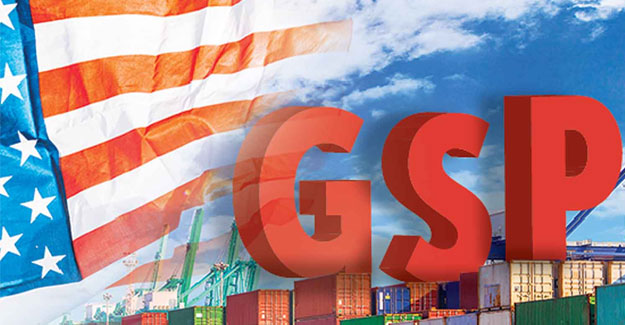
Bangladesh, India Largest Beneficiaries Of EU's GSP
Last month, the European Commission published its biannual Report on the Generalised Scheme of Preferences ("GSP") for the period 2018 - 2019. It is reported that over 10% of EU imports come from GSP beneficiary countries. According to the Commission, exports to the EU under GSP from 71 beneficiary countries reached around 184 billion euro. The largest product sector to benefit from GSP is apparel and clothing (47.9%), followed by footwear (11%), mechanical appliances (7%), fish products (4%), leather (3.7%) and plastics (2.7%). India is the GSP beneficiary with the largest share of overall imports into the EU (including non-preferential), followed by Vietnam, Nigeria, Bangladesh and Indonesia. If considering only preferential imports, Bangladesh has become the EU's number one GSP partner closely followed by India, Indonesia, Vietnam and Pakistan. While mainland China used to be a beneficiary country, it was graduated from the scheme in 2015. There are three different arrangements for reducing trade barriers according to the needs of the beneficiary countries: the general GSP, GSP+ and the Everything But Arms ("EBA") arrangements. The general GSP arrangement is applicable to low-income or lower-middle income countries which do not have other preferential access to the EU market. Under this arrangement, the EU grants partial or full removal of customs duties for products covered by around 66% of tariff lines. There are currently 15 beneficiaries: Cook Islands, India, Indonesia, Kenya, Micronesia (Federate States of), Nauru, Nigeria, Niue, Republic of Congo, Samoa, Syria, Tajikistan, Tonga, Uzbekistan and Vietnam. The general scheme applies to the various product categories depending on how well developed that sector of the beneficiary country is. If a sector is sufficiently developed to be considered competitive with the rest of the developed world, it will graduate from the scheme. GSP+ is a special incentive arrangement for sustainable development and good governance applicable to vulnerable low and lower-middle income countries. Vulnerability is assessed with respect to share of imports and economic diversification. Under the condition that they implement 27 core international conventions on human rights, labour rights, protection of the environment and good governance, the EU reduces customs duties for essentially the same products under the general GSP arrangement to 0%. There are currently 8 GSP+ beneficiaries: Armenia, Bolivia, Cabo Verde, Kyrgyzstan, Mongolia, Pakistan, the Philippines and Sri Lanka. The EBA arrangement is a special arrangement applicable to countries classified by the UN as Least Developed Countries (LDCs). Under the EBA arrangement, the EU grants duty-free, quota-free access for all imported products except arms and ammunition. There are currently 48 beneficiary countries. The biggest share of imports under EBA came from Bangladesh (61.8%), followed by Cambodia (18.4%) and Myanmar (7.1%). In terms of overall GSP beneficiaries, Bangladesh overtook India in 2018 (with €16.8 billion preferential imports against €16.4 billion from India). In the reporting period 2018 - 2019, 11 countries graduated out of the scheme due to reaching a higher economy status or due to entering bilateral preferential arrangements with the EU. Despite the falling number of beneficiaries, the value of imports to the EU from GSP countries grew by 16.2% i.e. from € 158 billion in 2016 to € 183.6 billion in 2018 (overall EU imports increased by 13.3%). Vietnam, one of the beneficiaries with the largest share of imports, will lose GSP-beneficiary status two years from the upcoming entry into force of its FTA with the EU. However, GSP duties will remain applicable if these are more favourable. Furthermore, a number of LDCs are scheduled to graduate. Following a transition period of three years, they could apply for GSP+, if conditions are met. In 2023, Bhutan will graduate; to be followed by São Tomé and Principe; and Solomon Islands in 2024. A date for the graduation of Tuvalu and Kiribati will be fixed in 2021. Bangladesh, Lao People's Democratic Republic, Myanmar, Nepal and Timor-Leste could be recommended for graduation the same year.
Textile Excellence
If you wish to Subscribe to Textile Excellence Print Edition, kindly fill in the below form and we shall get back to you with details.












